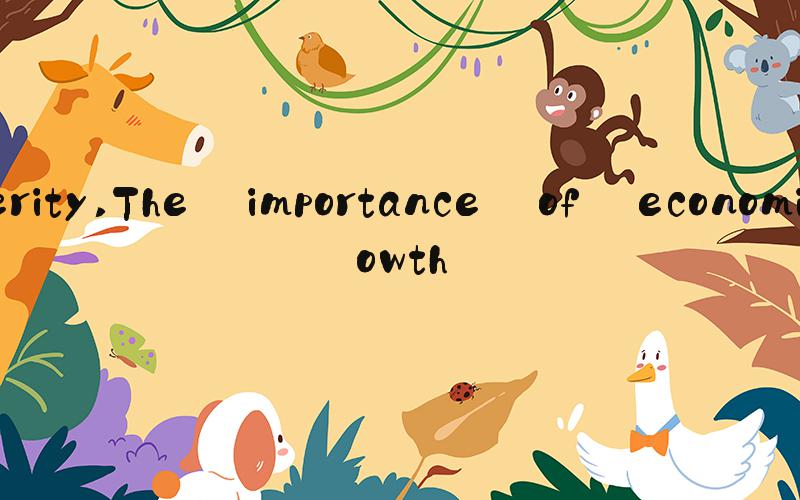
 Introduction
IntroductionProsperity is a concept that is often used in discussions about economic development and sustainability. At its core, prosperity refers to a state of wellbeing in which individuals and communities have equitable access to economic, social, and environmental resources. Achieving prosperity is not just about accumulating wealth, but also about using resources sustainably, considering the needs of future generations, and creating a cohesive and resilient society.
The importance of economic growthEconomic growth is a key determinant of prosperity. When a country's economy is thriving, it has the resources to enhance the quality of life of its citizens, invest in infrastructure and education, and build a robust social safety net. A fast-growing economy also spurs innovation, creates job opportunities, and attracts capital and investment from other countries.
The role of sustainability in prosperityWhile economic growth is important, it must be achieved sustainably to ensure long-term prosperity. Unsustainable economic practices, such as overuse of natural resources or unsustainable energy consumption, can lead to negative environmental and social consequences that undermine prosperity. Sustainable practices, on the other hand, allow for the preservation of natural resources and the mitigation of negative environmental impacts, which can support long-term economic growth and societal wellbeing.
The importance of equitable access to resourcesTo achieve prosperity, resources must be accessible to all members of society. This includes access to education, healthcare, social services, and economic opportunities. When individuals are excluded from these resources or face barriers to accessing them, it undermines the overall prosperity of society. Governments, businesses, and civil society must work collaboratively to ensure equitable access to resources and address systemic inequalities that hinder prosperity.
The role of technology in achieving prosperityTechnology has the potential to be a powerful tool for achieving prosperity. It can enhance productivity and efficiency, facilitate communication and collaboration, and increase access to information and resources. However, technology must be implemented in a responsible and sustainable way to ensure that it does not exacerbate existing social and economic inequalities.
Inclusive economic growth for prosperityInclusive economic growth is critical for achieving prosperity. This means that economic growth must benefit all members of society, not just a select few. Policies that promote inclusive economic growth include investing in education and healthcare, increasing access to financial services for underserved populations, and providing support for small and medium-sized businesses.
ConclusionProsperity is a multifaceted concept that requires long-term planning, sustainability, and equitable access to resources. Achieving prosperity involves a collaborative effort between governments, businesses, and individuals to ensure that economic growth is inclusive and sustainable, and that all members of society have access to the resources they need to thrive. By working towards prosperity, we can create a more resilient, equitable, and sustainable society for future generations.
